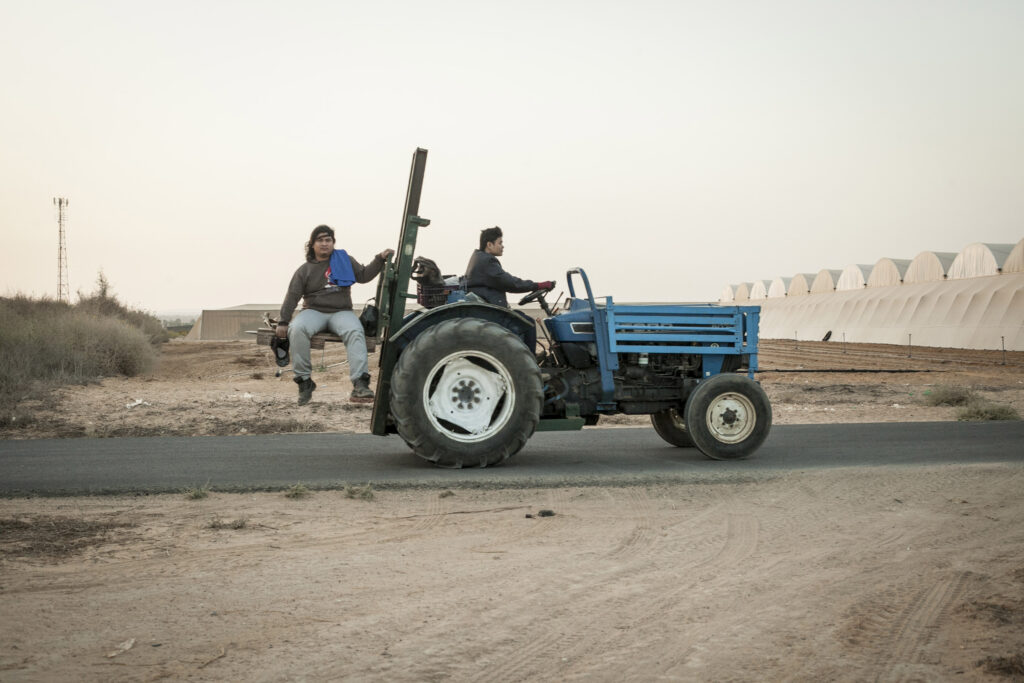In modern Zionism’s founding ideology, diaspora Jews work the soil. Today though, that soil is worked predominantly by Thais. An interview with anthropologist Matan Kaminer, who wrote a book about this development.

The Hamas attacks of 7 October 2023 included among their victims seventy Thai farmworkers. This toll cast a light on the changing demographics of agricultural labor in Israel: modern Zionism’s founding ideology, in which diaspora Jews would be redeemed by working the soil, has long ceded to neoliberalism’s imperatives. As state subsidies have declined, the kibbutzim and moshavim of what was once known as the Labor Settlement Movement (LSM) have increasingly relied on a cheap pliant labor force whose profile is closer to that of Gulf State workers than the young Hebrew pioneers envisaged by Zionist recruiters. Before the First Intifada, agricultural workers in Israel were largely Palestinians from the Occupied Territories. For the last 35 odd years, they have predominantly been Thai migrants.
In his new book Capitalist Colonial, Israeli anthropologist Matan Kaminer — a Leftist long involved in migrant solidarity activism — reveals how Thai migration has affected the LSM. He draws from his own six-month experience as a participant-observer working (with the consent of the farm’s owner) on one family farm on a moshav in the Central Arabah. In this desert region on the Jordanian border, the Thai population has equaled the Israelis since the 1990s. While they are working in what Kaminer describes as a system of « hyper-exploitation », the taylandim have exerted a surprising influence on how Israeli bosses interact with their employees.
In September 2024, I spoke on the phone to Kaminer.
Fernanda Eberstadt: Tell me about your own family background; Your father Noam Kaminer was well-known on the Israeli Left as an anti-war and anti-Occupation militant.
Matan Kaminer: My father’s parents were socialist Zionists from Detroit who moved to a kibbutz in the 1950s, in part so my grandfather could avoid being drafted into the Korean War. Soon after, they were expelled from the kibbutz for continuing to support the Soviet Union in a period when its relations with Israel were deteriorating quickly. My father grew up in Jerusalem and was in regular army service in the 73 War, when he fought in the Golan Heights. But with the invasion of Lebanon in 1982, he refused to fight as a reservist and was jailed several times. My mother’s family came from Germany as part of a youth movement that wasn’t originally Zionist but eventually became part of the kibbutz movement. When her kibbutz wouldn’t let her go to university to study mathematics after she finished her army service, she left; she met my father in New Left circles in Jerusalem.
This article is behind the paywall. Want to keep reading this article?
Subscribe to the European Review of Books, from as low as €4,16 per month.
Already a subscriber? Sign in